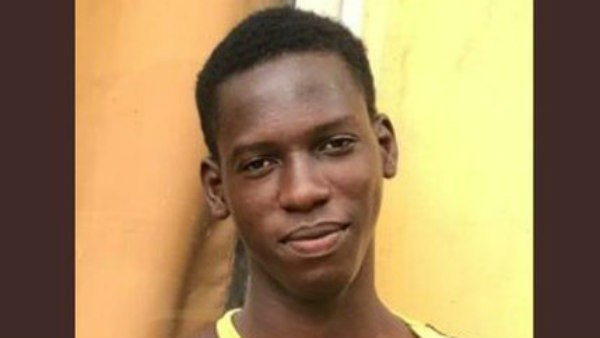September 3, 2024
Nearly four years after the killing of journalist Onifade Emmanuel Pelumi, we, the undersigned organizations committed to promoting and defending press freedom, call on Nigerian authorities to ensure Pelumi’s body is released to his family and that those responsible for his death are identified and held to account.
Pelumi was a student of the Department of History at Tai Solarin University of Education, Ogun State, and an intern at Gboah TV, an online television channel based in Lagos. On October 24, 2020, Pelumi was hit by a bullet while covering the #EndSARS protests for Gboah TV. The injured journalist was reported to have been seen in the custody of the police who were part of the Lagos State Task Force. The police later took him away in their vehicle, alongside several people arrested for allegedly infiltrating the protests to loot a COVID-19 relief facility. About a week later, on October 30, 2020, the body of Pelumi was found in a mortuary in Ikorodu, Lagos.
Authorities have yet to provide an official account of what happened to Pelumi and the need for greater transparency was underscored by a recent Lagos court order in a case brought by Nigerian press freedom group Media Rights Agenda, which directed the government to ensure the journalist’s death was investigated.
In February 2024, we, the undersigned organizations, sent letters by email and post requesting action on Pelumi’s case. The letters were sent to the offices of:
- Fayoade Adegoke, Lagos State Commissioner of Police;
- Lawal Pedro, Lagos State Attorney General and Commissioner for Justice;
- Gbenga Omotoso, Lagos State Commissioner of Information and Strategy; and,
- Babajide Olusola Sanwo-Olu, Lagos State Governor.
The only response we received was on March 20, 2024, from the Lagos State government, indicating that an “internal investigation” was underway and the findings would be communicated in “due course.”
This answer, after nearly four years of waiting for investigations into Pelumi’s death to conclude, is insufficient and only extends his family’s trauma. After years of waiting, it echoes a statement from November 11, 2020, by the spokesperson for the Lagos state police command, Olumuyiwa Adejobi, who said that Pelumi’s death had been reported to a new judicial panel of inquiry investigating allegations of police brutality, but declined to comment further. Pelumi’s family has not received any direct update on these investigations, nor have they been given any indication of when Pelumi’s body will be returned to them for burial.
The continued refusal to release Pelumi’s body violates the family’s customary right to custody of the remains of their deceased kin so that they can provide a proper burial. The lack of disclosure on the exact circumstances of the journalist’s death also contravenes the UN Principles on the Effective Prevention and Investigation of Extra-legal, Arbitrary, and Summary Executions, which state, “There shall be thorough, prompt and impartial investigation of all suspected cases of extra-legal, arbitrary and summary executions…”
Our calls for justice similarly align with the Nigerian government’s obligations under various other laws and international instruments, including:
- Section 33 of Nigeria’s Constitution, which affirms the right to life;
- Article 2(3) of the International Covenant on Civil and Political Rights, which affirms effective remedy when rights are violated;
- Article 66(2)(c) of the Revised ECOWAS Treaty, which ensures respect for the rights of journalists;
- The UN Plan of Action on the Safety of Journalists and the Issue of Impunity, under which governments have a responsibility to adopt effective measures to protect and guarantee the safety of journalists; and,
- Principle 20 (1, 2, and 4) of the Declaration of Principles on Freedom of Expression and Access to Information in Africa, which places an obligation on governments to protect journalists, guarantee their safety, and ensure effective investigation and accountability when journalists are attacked.
Without accountability, Pelumi’s case will add to several other unresolved killings of journalists in Nigeria, perpetuating a culture of impunity and promoting self-censorship. In this context, we request that your office act to ensure:
- Onifade Emmanuel Pelumi’s remains are released to his family;
- An effective and impartial investigation into the killing of the journalist and that those responsible are held to account; and,
- Rights-respecting policing in Lagos.
Signed:
Committee to Protect Journalists (CPJ)
International Press Institute (IPI)
Media Foundation for West Africa (MFWA)
